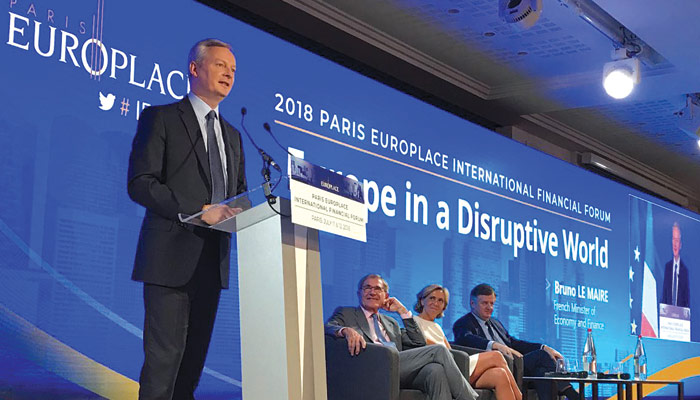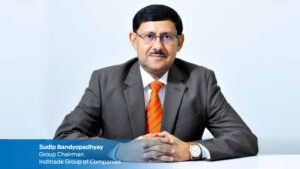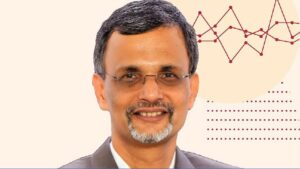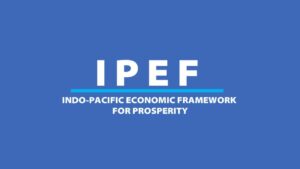Bruno Le Maire, French Minister of the Economy and Finance
The Paris EUROPLACE International Financial Forum is fast gaining the reputation for being the finest meeting point for high-level decision-makers from throughout the world. The 25th edition was themed “Europe in a Disruptive world” and was organized on July 11 & 12 at the Pavillond’Armenonville, Paris featuring financial and business leaders as well as policymakers and representatives from government and regulatory bodies to share views on: Accelerating Europe’s Economic Growth, Spurring a New Wave of Tech Companies, International Financings: New Needs and New Structures, Opening up of China’s Bond Market, Artificial Intelligence and How Technology is Rewriting the Capital Market?
Indian Economy & Market was invited to this important Forum and it brings here the speech delivered by French Minister of the Economy and Finance Bruno Le Maire on this occasion, which touches upon several questions being raised after Brexit and the China & US administration’s misadventure resulting in a trade war with a negative impact on growth.
By Krishna Kumar Mishra
“There is no denying that France has changed enormously since this time last year. We have had to prove that we don’t just talk the talk about reforms, we are actually capable of doing them. We are delivering. Our policy agenda is based around five priorities:
- First, we are simplifying the legal framework to make businesses more flexible and more resilient to economic changes;
- Second, we are encouraging greater investment thanks to reduced corporate and capital taxation;
- Third, we are focusing on human capital by improving training and education. We need to help the workforce prepare and adapt to technological breakthroughs. More generally, we are making our labour market more flexible;
- Fourth, we are investing in future industries: we are betting on the environment and new technologies such as Artificial Intelligence;
- And finally, we are tackling balance in our public finances: we are committed to reducing the public debt by at least 5 percentage points by 2022.
After a year in government, we have nothing to be ashamed of. On the contrary –
- First, growth is back. A 2.3% growth rate in 2017 and we should be around 2% in 2018;
- Thousands of jobs have been created: 350 000 last year and another 200 000 this year;
- We have reduced our public deficit for the first time in ten years below the 3% threshold;
- And we have experienced the sharpest increase in foreign investment projects in Europe.
But our results will be assessed over the long run. Success will be defined as the successful transition to an innovative, sustainable and fair global economy. We still have a long way to go. We will pursue our reforms with the same determination. Our SMEs struggle to grow at the same pace as their European competitors. Yet SMEs are the companies which create the most jobs, which drive innovation, and have the audacity to conquer new markets.
That’s why we recently launched an ambitious reform plan to transform the business environment, at the level of each individual company. The Action plan for growth and the transformation of the business environment (PACTE) includes measures for each stage of the lifecycle of a business. These include:
- First, obligations related to workforce thresholds will be considerably lightened and simplified.
- Second, we are cutting red tape: we are creating an online platform for firms’ paperwork which will replace 7 existing networks with one online platform.
- Third, the timing and costs of bankruptcy procedures will be reduced and the predictability of outcomes improved – thus allowing entrepreneurs to bounce back and benefit from a real second chance.
- Fourth, we are establishing a 10-billion euro disruptive innovation fund thanks to the sale of state-owned assets in Paris Airport, Française des Jeux and ENGIE.
- Fifth, we need to channel more household savings into profitable investments that will boost the economy. We are reforming retirement saving plans and life insurance schemes to increase the number of people who invest in such plans.
We also want to increase private companies and especially SMEs equity financing. PACTE will facilitate access to diversified funding with simpler rules to implement IPOs, capital investment and crowdfunding. We will also introduce a groundbreaking regime for ICOs – which has no equivalent in Europe.
In this transformation of the French economy, the financial sector has a vital role to play. That’s why we need an even stronger financial services sector in France. I mean banks, brokers, insurers, investors, asset managers… all of you here today who finances the real economy.
To conclude – a wider perspective. We are at a crossroads. Life cannot go on as before. We are faced with threats to the European project itself and nationalist movements on the rise across Europe. We cannot allow the world’s future to be decided for us by China and the United-States.
We want to shape our own future with our own values, our own interests and our own rules. The EU has to change and respond to this new world. It’s clear that either we transform the EU or we’ll end up being simple spectators of a new global economic world order. It’s now or never to transform the Eurozone into a genuine economic union.
A strong monetary union underpins solid growth. We are in a much better place than ten years ago but we are still a long way from an optimal monetary union. That is why I have spent days and nights in recent months negotiating with my German counterpart Olaf Scholz. Together we agreed on a roadmap for Eurozone reform. It was endorsed by Chancellor Merkel and President Macron.
It identifies three main priority areas:
- First, we need to complete the Banking Union to break the sovereign / bank loop.
- Second, we must strengthen the European Stability Mechanism (ESM) so that it becomes an effective crisis management tool.
- Third, we wish to create a Eurozone budget that will finance public investments in innovation, thus promoting economic convergence and stabilization in the Euro area.
Our proposed roadmap is a basis for further negotiations with all euro area members. It’s open for discussion and improvement.
But we need to move forward quickly. It’s in all our interests. We need to strengthen the European economy.
A smooth and fair Brexit
It is positive that we now have a more detailed position from the UK about its objectives. Time is running out, and the ongoing uncertainty is no good for anyone, in particular for business. We will study carefully the White Paper which we hope will be published quickly. We want an agreement with the UK, but let’s be clear: this agreement has to fully respect the EU’s integrity and rules.
On financial services, we believe the only way forward – which will allow appropriate access to financial services markets – is one based on reviewed and improved equivalence mechanisms. This will preserve financial stability, the integrity of the single market and the autonomy of decision making in the EU.
A more effective new global order
Multilateralism as we know it is being called into question. In a few years, China has become the second economic world power. And the USA has become unpredictable. In the face of such changes, the EU cannot be powerless. But the fact is that today, we don’t have the tools to assert our economic sovereignty. We need to build European industrial champions that can be global leaders. And we need to ensure we are capable of developing and owning the technologies of the future.
There are some fantastic existing examples such as the recent merger of Alstom and Siemens. But we need to go further. Peter Altmaier suggested a common initiative on artificial intelligence: it’s a great idea. Another example is in the area of batteries: Europe must be able to build the next generation of batteries. A French constructor alone cannot do it. But together, we are strong.
We also need to assert our economic sovereignty in the area of trade. Just as Brexit, a trade war will have a negative impact on growth. The trade war has already started. We now have to avoid it from escalating. That remains in the hands of the USA. We agree there are underlying issues that need to be tackled such as overcapacities, excessive subsidies and breaches of intellectual property rights. But attacking your allies and breaking international law is not the right way to go about it.
In this context, France and the EU will not stay silent. We have to protect ourselves. We will remain united. We will react proportionately, sensibly but firmly. This is true for the trade in goods. It’s also true for financial services.
To conclude these are uncertain times. The foundations of the world economic order, we’ve known for decades are being shaken to their core. People are scared. The temptation to look away and try to cut out the external world is strong.
But that would not be the right answer. Europe is – as I said earlier – at a crossroads. If we are confident in ourselves, if we stick together and live up to the challenges we face, we can be the continent of economic growth, of human rights and the rule of law, and peace. But we need to fight for that.






















